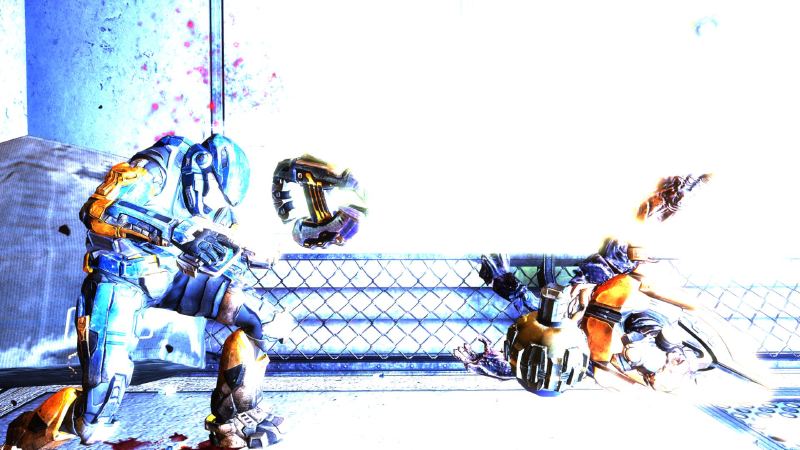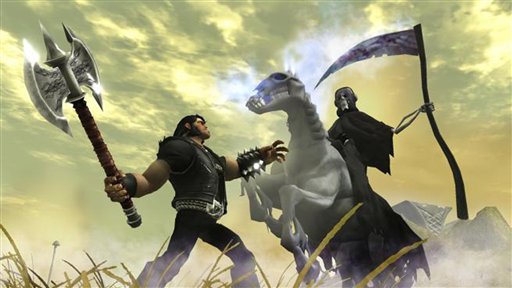This post has not been edited by the GamesBeat staff. Opinions by GamesBeat community writers do not necessarily reflect those of the staff.
My birthday was this week. I can no longer get excited about every other item on the back pages of the Argos catalog, where they keep the toys, but I needed a list. That new Halo game looked interesting, and a whim to check out Brütal Legend and Dead Space came into my head, so those all went on my Amazon wish list.
A few days later, after completing Halo: Reach, I'm a couple of hours into Double Fine's metal wonderland and EA Redwood's deep-space nightmare.
Apart from the obviously different settings, the difference that struck me before too long was the ways the three studios handled death.

In Halo, you can die at any moment from a direct hit from an unseen fuel rod discharge. It's especially humiliating when the death cam shows the offending four-foot tall alien wave its arms as it runs away from your invincible squad-mates. This happened often because of Halo's large, open battlefields and Bungie's sandbox approach to level design — multiple ways to approach a killing field, and multiple ways to die. And, of course, those grunt heavies are small and hard to spot.
Death is often just unfair. It comes often, too — I died 189 times in my Heroic campaign. ("Heroic" is Bungie's suggested difficulty level for people who've played Halo before.)

I've died only a few times in Brütal Legend. But when it happened outside of a fight, it was my own stupid fault for driving off a cliff. Unlike Noble Team, your metal brothers and sisters actually help you here. In fact, they do most of the work in the RTS-lite stage battles. In stage battles, death doesn't come with a penalty — you just respawn at your base. In normal missions though, I've repeated sections several minutes long.
So death is sometimes a big setback, but easy to avoid.

The first thing to say about death in Dead Space is that it's bloody brutal. Bloody and brutal — monsters will lop your arms off, bisect you at the waist, or chew your neck off. The first few times this happens, the spectacle sweetens the failure. Death is also necessary — what would there be to fear, if you knew you were safe from death? It was sometimes frustrating to keep failing in a particular room, but I could always see what I had done wrong and try something different next time.
Death is enticingly ugly, a constant worry, and educational. The constant threat of death can be frustrating, but makes the game as scary as it should be.
Death is rarely welcome in games. Playing these three, I started to think about what makes it easier to take. I think these three features help:
- A lack of bullshit, like surprise fuel rods to the face.
- A lack of severe punishment from widely spaced checkpoints and lost progress. [Edit: and, as some commenters have pointed out, less of that down time for cinematics and loading screens.]
- The feeling that I'm learning how to better play the game.
None of these games disobey all three points, so I'm enjoying them all. I died unfairly in Halo, but I could start again a few feet back. I sometimes had to retry large sections of Brütal Legend, but at least death was infrequent and I knew what to do next time. I'll probably die hundreds of times in Death Space, but I won't be repeating huge sections of the game, and alternative approaches have worked so far.
In fact, I can't remember a game from the last few years that's disobeyed those three rules. Have developers learned that players aren't their torture subjects, or am I just playing the right games? Help me out in the comments. Also, what's your favorite death mechanic? Mine is Prince of Persia 2008's — it wasn't punishing, and took place within the prince's fictional universe.
